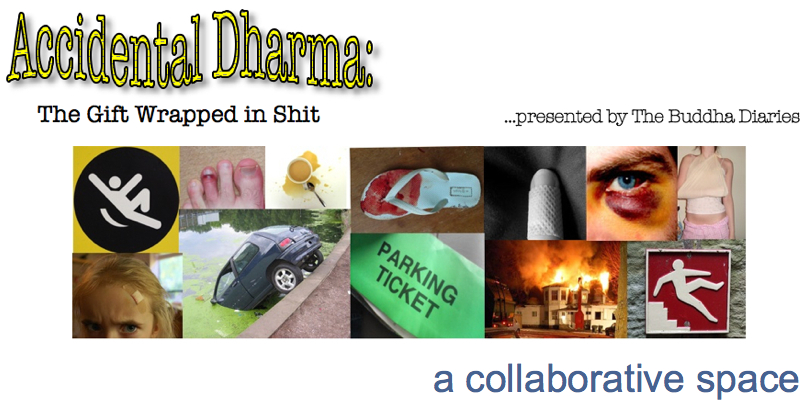Thanks, again, to Gary
at Forest Wisdom
Traveling about a modern city one can be excused for thinking that we live in chaotic and heartless times, with people driven by their out of control desires. Just an every day activity such as driving around a provincial city like Ubon, here in Thailand, can be a hair-raising experience. Drivers cut each other up as they speed to wherever it is that their hankerings lead them, others overtake on the inside lane, or park in the middle of the road, unwilling to take the time to find a safe parking space.
It’s not only on the roads of Northeast Thailand that present day restlessness shoves us into various levels of conflict: all over the globe people push in front of each other rather than wait in queues, and impatience makes us lose our temper when service isn’t quite as fast as we’d like. Moreover, desire leads us to seek out the best paid jobs (rather than the most satisfying); ‘face’ means trying to get a newer car than the neighbors, or talking into the latest cell phone, just to look ‘cool’. Desire upon desire.
What drives this desire to be the ‘best’, the most attractive, the richest, and the most famous? Buddhism shows us that desire (tanha) has its root in ignorance (avijja). Ignorance towards the way things are, the Dhamma, allows attachments to develop regarding our self-image, our perceived place in society. So many of us rate our worth not by the good or wholesome qualities that we can display, such as kindness, compassion, empathy, generosity, or love, but by how powerful, sexy, or wealthy we are seen to be. As a species, humanity lives without wisdom.
All pretty depressing, really. But, wait, these are just words, thoughts, and feelings. The same ignorance that causes identification with our desires is the same lack of insight that creates sorrow around them. We need to apply a little wisdom to our lives: the wisdom of the Buddha.
The Buddha taught us to pay attention to our thoughts, feelings, perceptions, and sensations. He showed us that being aware of the way it is, we can understand life better and live happier lives, reducing the amount of suffering that we cause ourselves and each other. Part of seeing the way things are is to have understanding of others. Simply saying that they’re being ignorant and dismissing them as stupid fools won’t help them or us, and it’s being incredibly unwise, for we are all subject to the same effects of ignorance and desire – it’s just a matter of degree. As Venerable Gunavuddho at the International Forest Monastery said to me recently, we should cultivate compassion towards those whose wisdom is little. (And that includes ourselves!)
So, driving around Ubon with the wife, I can be aware of the selfish behavior of many of the drivers, whilst paying attention to my responses to their actions, as well as watching the sometimes irate reactions of my wife to dangerous driving. Seeing the ego-driven attachment to ‘saving face’, which in some ways is more obvious here in Thailand than in my home country of England, I can be understanding and non-judgmental. And even with myself, when I respond to selfish behavior with aversion, I can take a back seat and just watch, allowing negative emotions to arise, exist, and fall away without acting upon them. This way is the Way of the Buddha, using insight to get to the root cause of our nescient actions, and let go of them. Traveling through Ubon is then akin to a drive through the park…or the forest.
Wednesday, March 19, 2008
Subscribe to:
Post Comments (Atom)


No comments:
Post a Comment